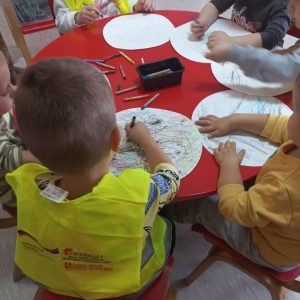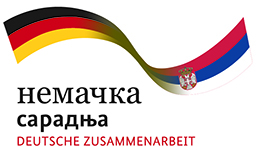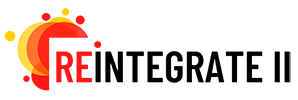The Good-neighbor club in Pirot has become a key gathering place and support center for returnees and vulnerable local populations throughout the “Reintegration II” project. Through various workshops and activities organized regularly, the club has stood out as an example of how an inclusive approach can create lasting connections within the community and improve social cohesion. Since its inception, this space has become a safe environment for children, youth, and adults, where everyone is welcome to participate in workshops tailored to their needs and interests.



One of the club’s main goals is to provide a platform for the education and creative development of children and youth, as well as to raise awareness about equality and mutual respect. For the youngest participants, creative workshops are organized to stimulate the development of motor and social skills through play, drawing, and modeling. Through these activities, preschoolers learn how to express themselves, collaborate, and develop their talents in an environment that embraces diversity. In addition, high school students have the opportunity to participate in workshops on equality, addressing important social issues such as gender and social equality, tolerance, and fighting discrimination.



A particularly significant aspect of the club’s work includes workshops in the natural sciences, such as mathematics, physics, and chemistry. These workshops not only help students improve their knowledge and skills in these subjects but also motivate them to prepare for further education or future professional careers in these fields. Students who face difficulties in school receive individualized learning support here, which increases their confidence and motivation to succeed.
A unique feature of the club is the formation of small groups that function as support systems, not only during the workshops but also outside of them. Participants develop strong interpersonal connections and often continue to socialize and collaborate on joint activities and projects even after the formal workshops have ended. This model of work contributes to creating a network of solidarity, where each group member provides support to others, further strengthening community bonds and social inclusion.
Folklore workshops are another important part of the club’s program, where young people learn about the cultural heritage and traditions of their region. Through dance, music, and song, participants not only nurture local customs but also connect with older generations, establishing a bridge between the past and the future. These activities contribute to a sense of belonging and pride while simultaneously promoting multiculturalism and openness to new experiences.



All these activities at the Dobrosusedski Club in Pirot not only enrich the everyday lives of participants but also have long-term effects on strengthening the community, supporting vulnerable groups, and building an inclusive society where everyone has the opportunity to grow and realize their potential.
For the City of Pirot, more than 300 inclusive workshops are planned during the duration of the Reintegrate II project.
The total value of the project for the City of Pirot amounts to 400,000 euros, and the project will run until April 31, 2025. Information about project activities, open calls, and more will be available on the project’s website, www.reintegracija.net, as well as on the City of Pirot’s website, and the websites of partner organizations and associations.
The project is led by the German organization ASB (Arbeiter-Samariter-Bund), with the implementation partner being the Initiative for Development and Cooperation (IDC) from Belgrade. The target regions for the project are the Pirot, Rasina, and Raška districts. The project is funded by the German Federal Ministry for Economic Cooperation and Development (BMZ), with the support and co-financing of the City of Pirot.


